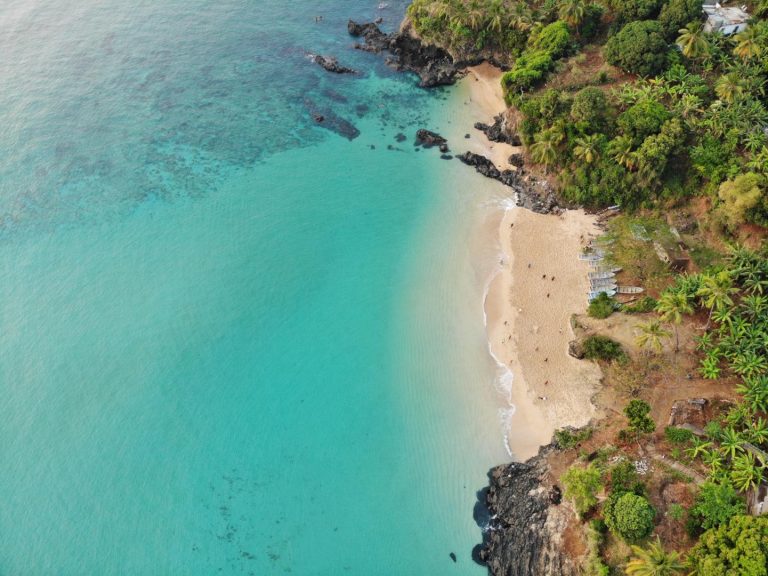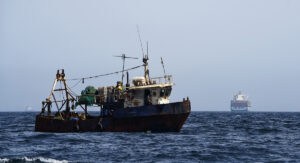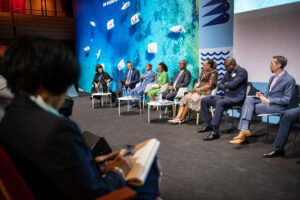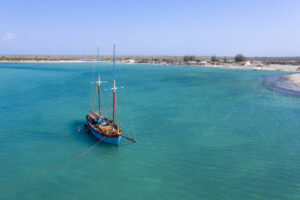But the survey team, led by the conservation groups Blue Ventures and the Wildlife Conservation Society and funded by Conservation International, also found some signs of hope. Scientists discovered several small reefs with corals that appeared to be resilient to rising sea temperatures and could ultimately be used to reseed damaged reefs. These resilient reefs may also provide valuable information about how to protect corals from future damage.
“This survey shows how important it is to locate and protect areas of resilient corals,” said Alasdair Harris, research director of Blue Ventures. “As climate change poses an increasing threat to our marine habitats, these resilient areas could hold the key to ensuring the continued existence of coral reefs around the world and the marine species that rely upon them for survival.”
Blue Ventures and the Wildlife Conservation Society will hold a community workshop in Madagascar in October to discuss the urgent need to protect Madagascar’s southwestern reefs from further damage. The meeting will look into the creation of a network of marine protected areas to promote the long-term survival of the region’s coral reefs. Through a system of connected protected areas, corals will have a better opportunity to grow and spread larvae to reseed damaged reefs in the region.
A number of coral bleaching events – where rising sea temperatures cause corals to turn white and ultimately die – have struck Madagascar’s southwest coast over the years, the worst being in 1998 and 2000.
Previous surveys have found that Madagascar’s northern coasts escaped damage from these global bleaching events, thanks to cool water currents from nearby deep ocean areas. Madagascar’s southwestern coasts, however, have not been so lucky.
In areas where scientists found damaged coral reefs, algae had started to take over the dead reefs, and fish diversity was lower than in areas with healthy corals.
Madagascar’s coastal waters are believed to have some of the highest diversity of marine species in the Indian Ocean.
During the survey, scientists recorded 386 species of fish along the southwestern reefs of the Andavadoaka region. Of these, 20 species had never before been recorded for Madagascar and one may be a new discovery to science. The survey team believes that further research may reveal as many as 529 fish species living among these reefs.
The survey team also recorded 164 species of hard coral, including 19 that were previously unknown to inhabit Madagascar’s waters. Another four coral species could not be identified and may be new to science.
The total number of coral species recorded was significantly lower than those previously found along Madagascar’s northwestern coasts. These lower numbers are believed to be a direct result of the mass bleaching events of 1998 and 2000.
“Global warming is a major threat to the world’s coral reefs, but there are other more direct threats as well that can be more immediately addressed,” said Harris. “Destructive fishing practices and nutrient runoff from villages and resorts are also killing these incredible underwater systems that provide vital resources for the people of Madagascar.”
Overfishing and nutrient runoff have decreased the number of plant-eating species living within the coral reefs, allowing damaging algae to grow on corals already stressed by rising sea temperatures. By increasing the number of herbivores, damaging algae can be controlled and coral settlement and growth can increase.
Harris said it is urgent that government agencies, NGOs and local villages work together to create marine protected areas to prevent overfishing and other activities that are damaging coral reefs and the many marine resources they provide. The development of alternative and sustainable incomes – such as ecotourism – will also assist local villages that are currently dependent on these dwindling marine resources.
Scientists will present the findings of their survey at the October meeting in Madagascar, and hope it will be used by the government in its plan to expand the amount of protected areas in Madagascar, including increasing the total size of the country’s protected marine habitats from 2,000 square kilometres to 10,000 square kilometres.
The entire report can be found at http://blueventures.org/research/Andavadoaka_Report_Harding_et_al_2006.pdf






















